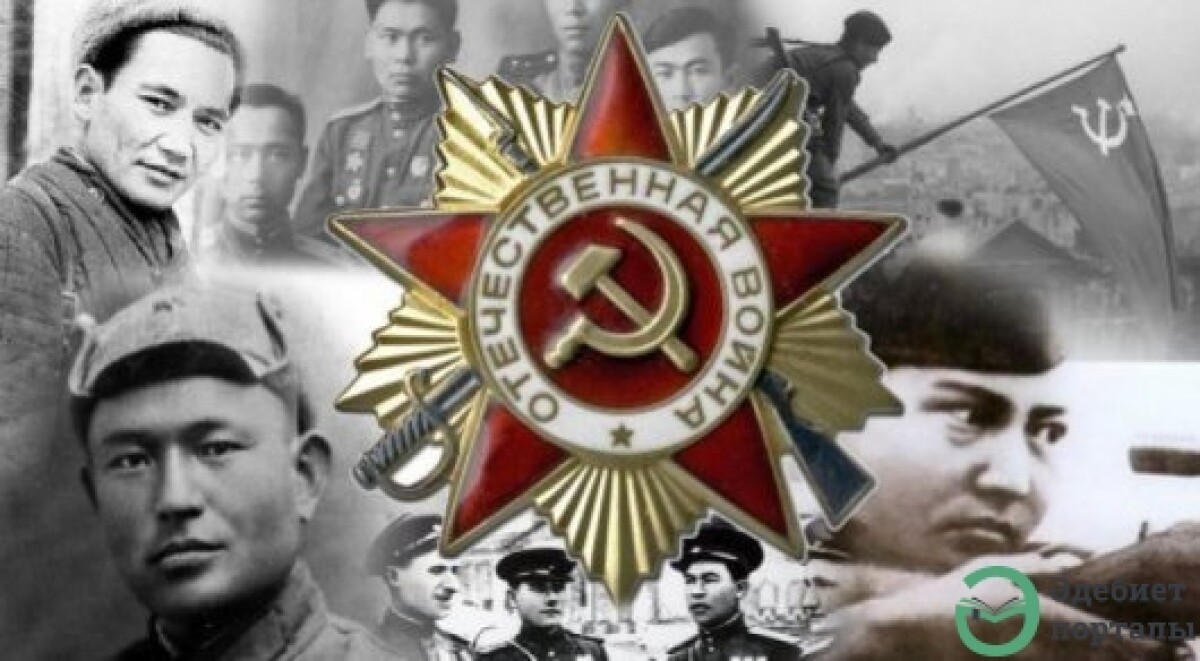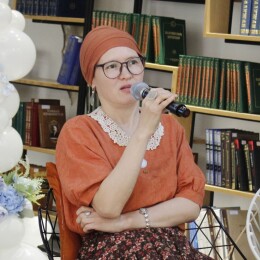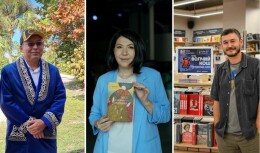This article is dedicated to the works of Qazaqstani writers, that are devoted to the Second World War.
It should be noted that the Qazaqstani prose of 1960-1980 is remarkable for its realism. The writers describe events as they are, in reality, without any perversion.
The story “The Golden Watch” by Safuan Shaimerdenov describes a bitter but true story that took place during the Second World War. It is written in a form of a dialogue. This tool of writing helps the writer to convey emotions of the characters, so readers can get to know them first hand. At the same time, it allows the readers to have an excellent opportunity to interpret characteristics of the heroes and story themselves.
There were two passengers in a compartment coach of the train, travelling already three days. At the beginning they sat in the coach like strangers in a silence. Suddenly, on the third day one of the passengers noticed a watch in hands of the another passenger. An old, antique watch had hand engraving “Pavel Bure”. So that passenger asked his neighbor, where he got that watch. And the man started to tell his story.
The hero of the story, who treasured the gold pocket watch that his farther had given him, lost it in one of the military operations during the Second World War. He saw the same watch by pure accident in a bag of his comrade – in –arms, Tyemoyin. There were a lot of expensive watches in Tyemoyin’s bag. Tyemoyin said without shame or remorse that he had taken them off from the hands of the dead soldiers, that upon arrival home he would sell them and build a house and become rich. Tyemoyin words made our hero’s eyes open.
Tyemoyin did not immediately give back watch with hand engraving “Pavel Bure” even to its owner, his comrade – in – arms. “If you need it, find a gold watch and give it to me, and I will give you your watch back,” he said.
A few days passed, after one of the battles, where Soviet soldiers achieved victory, our hero was looking for a gold watch in the hands of dead soldiers, he had in mind an idea to get his father’s watch back, but suddenly he saw the dead Tyemoyin. He did not take the watch. He buried Tyemoyin, and put all his watches next to him. After this incident, he promised himself, never to wear a watch.
In this story, the author portrayed the real image of a tradesman who, even during bloody battles, grief and woe, died thinking about his own pocket, welfare. The plot of the story does not leave indifferent anyone, who read it. The image of Tyemoyin, who shamelessly collected watches of his own comrades-in-arms, who died heroically defending their Motherland, generates abhorrence of the readers towards him.
The author of the story through the image of Tyemoyin strongly criticizes the moral impoverishment and meanness of people. And, on the contrary, in the image of the main hero, he shows the protagonist’s human nature, his kindness and sincerity.
In general, the writer reveals in this story the importance of true values. He states, that every human life is sacred and dignity of human persons stands above all things, including material ones. Nothing can justify Tyemoyin’s moral behavior.
Real events related to the life in the Qazaq auls (an “aul” means a “village”) during the Second World War are described in Sherkhan Murtaza’s stories. A young woman named Khadisha is a main protagonist of his story under a title “The Woman of the 41st”. When her husband, Maksut, and along with other men of the aul went to the front, she was only eighteen years old. At last the war ended, all who survived returned home from the front, and there was no news from her husband. She did not want to believe that he died, and she lived in his house and waited for him. When her daughter Zhanar married, she wanted to take Khadisha with herself, but she refused. She did not want to leave her husband’s house. So she has been waiting for her husband for many years.
Events, taking place in the story are transmitted through the dream of the main character. Khadisha saw in her dream her husband. He was young, as she had seen him last time before. She shared with him all the troubles that have befallen her. And for some reason the husband did not cross the threshold, stood at the door, and she, angry, shouted at him so much that she woke up. Khadisha, surprised that her husband in a dream did not answer her at all, continued to live on with the hope that her husband would return sometime in the future.
In this story, the writer in simple language depicts not only the image of Khadisha, but shows rough life of all women, whose husbands died during the Second World War. The image of the main heroine is portrayed masterfully.
Mukhtar Magauin tells about the fate of orphans brought to the aul during the Second World War in the story “Children of One Father”. Once six children were brought to the aul. They were orphans of different nationalities, whose parents died during the war. Inhabitants of the aul, who lost their sons, brothers, husbands in the war, with great pleasure accepted orphaned children. They were ready to take those children to their home, as close relatives. But among them was a boy of German nationality, no one wanted to take him.
By fortune among the people gathered there was an old man, whose name was Akhmet. He was a man of principle and risked talk. He immediately took that boy under his protection. The boy’s name was Siegfried Folfgang Wagner. Akhmet circumcised a German boy according to Muslim tradition, gave him a new name and people began to call him Zeken Begimbetov.
Akhmet was not afraid of gossips, he took a German boy to prove that the main value of a person is not his nationality, but his humanity. The old man did everything to warm the boy’s heart and raised him. And although it was difficult to live, there was a shortage of the most vital things, Siegfried nevertheless successfully learnt the greatest lesson of life and became a really good person. He respected Akhmet and the country, that nurtured and raised him very much.












